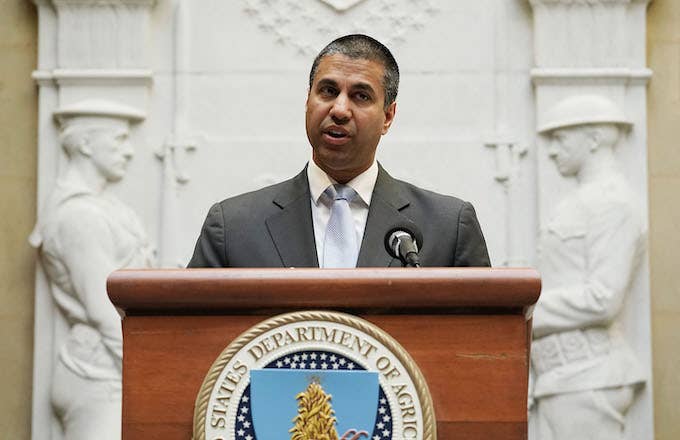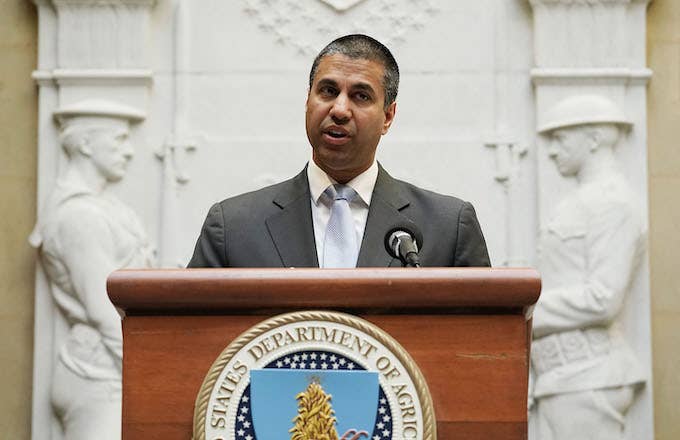
On Monday, U.S. Federal Communications Commission Chairman Ajit Pai, the guy trying to gut net neutrality, wrote a letter to more than a dozen CEOs (some of whom were in that position for major telephone service providers) to do something about the billions of spam/robocalls that pester and annoy the hell out of Americans every month, Reuters reports. The FCC is also demanding that these companies do something to help cut the shit by no later than 2019:
Back in May, Pai asked companies to use a "call authentication system," or some sort of standard, for getting illicit numbers out of the telephone system. Monday's letter indicated that he's expecting answers on where that's currently at over the next two weeks. Reuters notes that this letter was sent to: AT&T, Verizon, T-Mobile US, Alphabet Inc., Comcast, Cox Communications, Sprint, CenturyLink, and Charter Communications, among others.
The letter also expressed concern over some companies' current efforts (or lack thereof) including: Sprint, CenturyLink, Charter, and Vonage, among others, for not really doing anything to fix the problem. In fact the letter said they don't "yet have concrete plans to implement a robust call authentication framework." So perhaps that call for help several months ago wasn't taken too seriously.
According to a company that blocks and tracks robocalls called YouMail, there were an estimated 5.1 billion sent out last month, which was a 150 percent increase of the already high 3.4 billion that were sent out in April.
The FCC has tried to deter these calls, but it hasn't been as effective as planned. Thus the need for the authentication system, which the FCC said "digitally validates the handoff of phone calls passing through the complex web of networks, allowing the phone company of the consumer receiving the call to verify that a call is from the person supposedly making it ."
"We need call authentication to become a reality," Pai said. "It’s the best way to ensure that consumers can answer their phones with confidence. By this time next year, I expect that consumers will begin to see this on their phones. I am calling on those falling behind to catch up ... If it does not appear that this system is on track to get up and running next year, then we will take action to make sure that it does."

